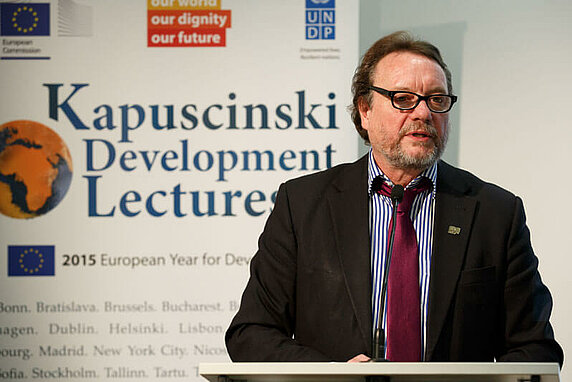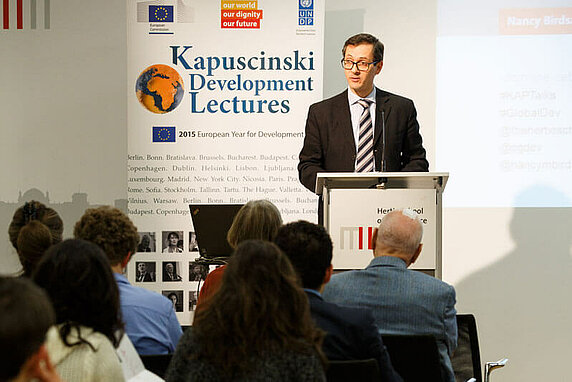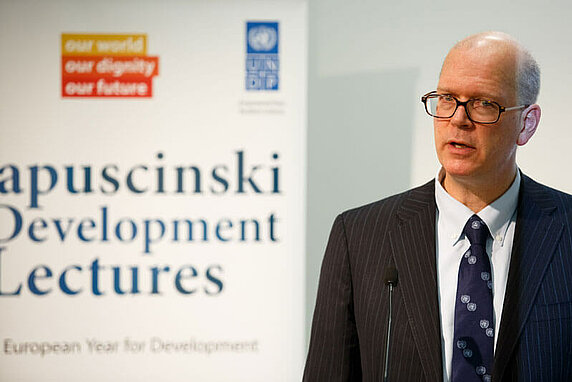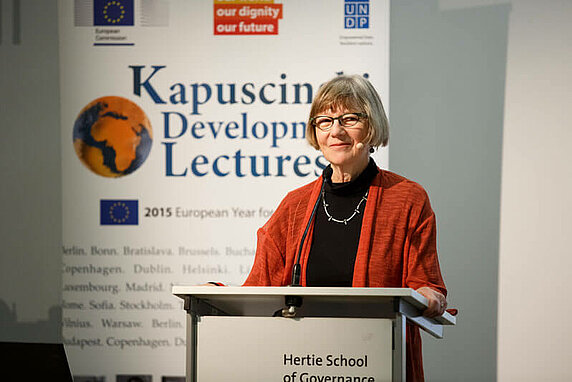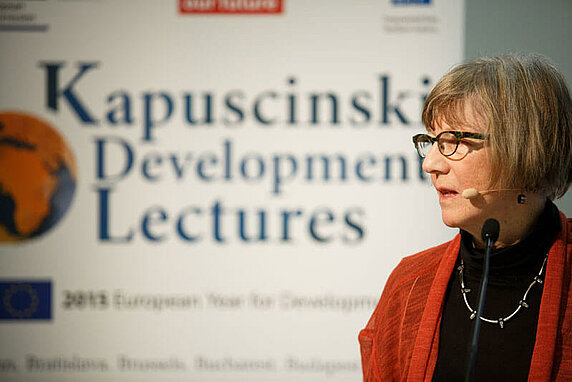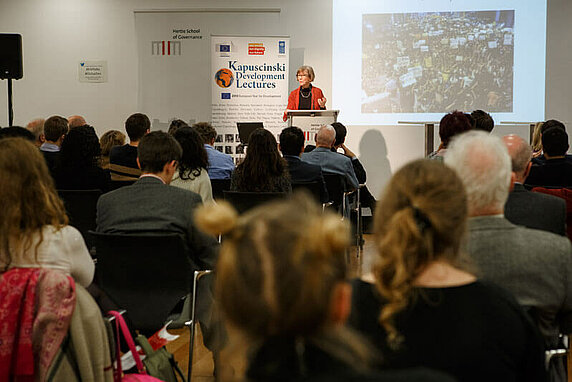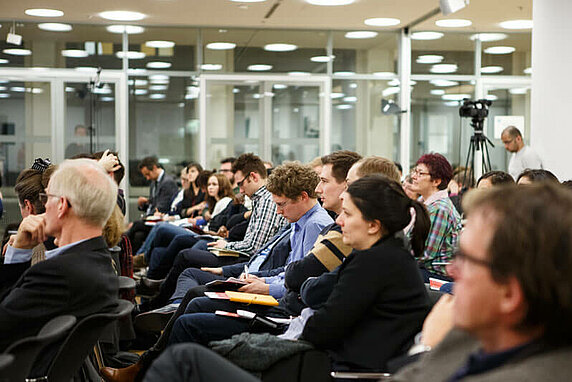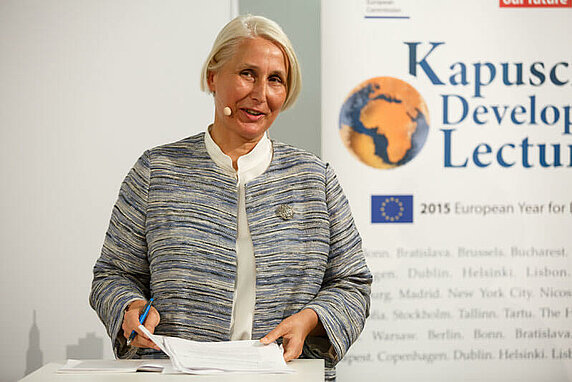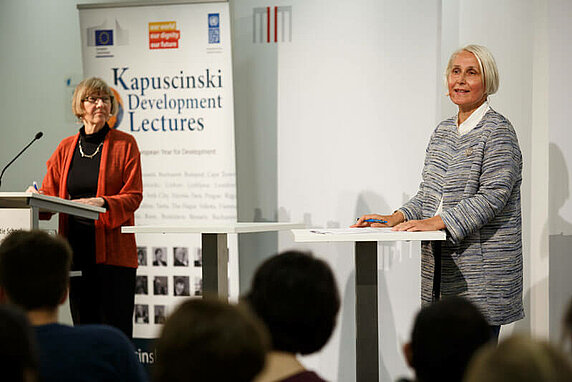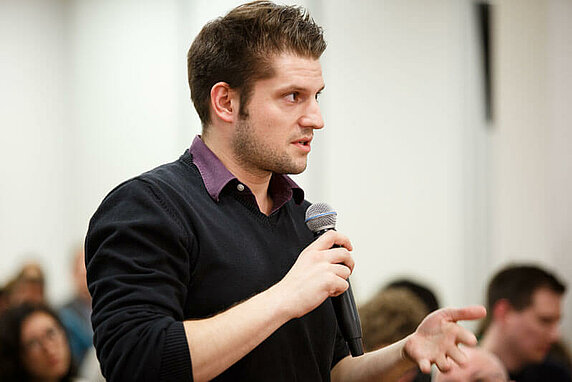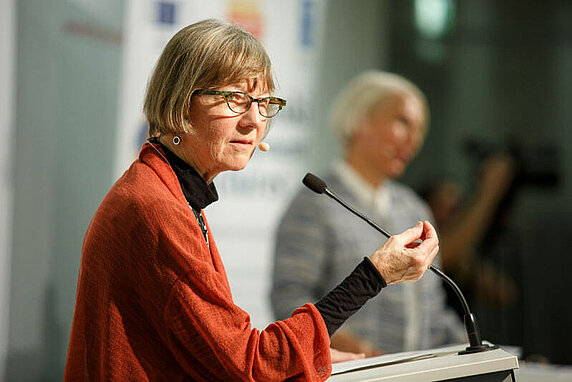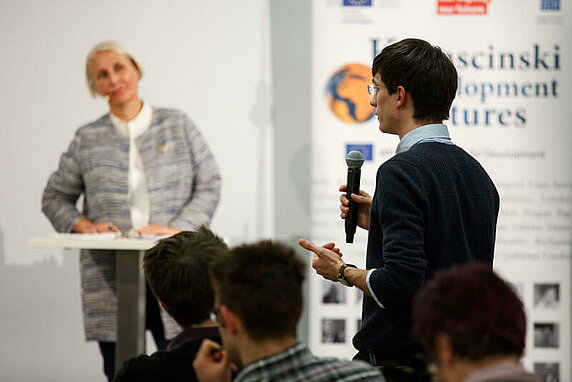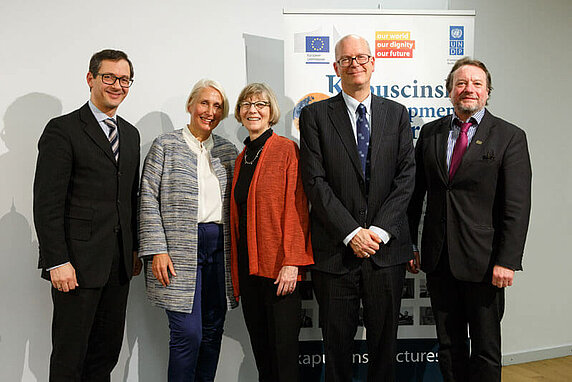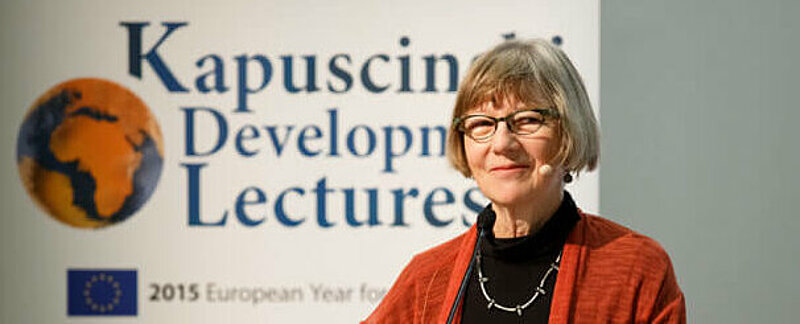
Kapuscinski Development Lecture with Nancy Birdsall, Founding President at the Center for Global Development
History suggests that a large and secure middle class is a solid foundation on which to build and sustain an effective, democratic state. Can we hope, then, that the recent rise of new, large middle classes in some developing countries will be good for governance in those countries? How dependent are new middle classes on continued growth? Who constitutes as the middle class in the developing world? And under what conditions does a large-enough middle class have a positive effect on a country’s politics and policies? Finally: should governments in the rich world, and institutions like the World Bank, aim to build and nurture the new middle classes, and if so how?
Welcome and commentary:
Helmut K. Anheier, Dean and President, Hertie School
Richard Kühnel, Head of Representation, European Commission Representation in Germany
Ben Slay, Senior Advisor, UNDP Regional Bureau for Europe and CIS
Moderation: Arntraud Hartmann, Adjunct, Hertie School
The lecture was a joint initiative of the European Commission, the United Nations Development Programme and the Hertie School. The project was funded by the European Commission.
About the Kapuscinski Development Lectures
Top global thinkers discuss development in European Union countries in this lecture series. The series Kapuscinski Development Lectures, named after Ryszard Kapuscinski, a Polish reporter and writer whose work covered events in developing countries, is organised jointly by the European Commission, the United Nations Development Programme and partner universities and development think-tanks. Since 2009, there have been over 50 lectures which have drawn over 10,000 participants. From October 2014 to December 2015, the lectures organised in all EU member states contributed specifically to development policy debates as part of the European Year for Development 2015.
The lecture series offers students from EU member states an unprecedented opportunity for learning about and discussing development issues such as climate change, human rights, aid effectiveness, Europe-Africa relations and Millennium Development Goals (MDGs). The prestigious events contribute to the debate surrounding, and formulation of, European development policy. The lectures can be live streamed at http://www.kapuscinskilectures.eu and their content is shared on this website.
As mentioned above, the lectures honour the name of the late Ryszard Kapuscinski, who died in 2007. Kapuscinski, whose books were translated into many languages, was often named the “third world chronicler” or the “voice of the poor” for his famous articles and books describing issues faced in developing countries in each continent. Among his other books, he was most famous for The Emperor, a book on Ethiopia, Shah of Shahs about Iran, The Shadow of the Sun about Africa, Another Day of Life about Angola, and Imperium about the Soviet Union.
Event note
United Nations Reflection Series 2016 on Development cooperation, policy advice and middle income countries
The United Nations Reflection Series 2016 on Development cooperation, policy advice and middle income countries was held on April 14-16, 2016, at the Hertie School and organised by the United Nations System Staff College’s Knowledge Centre for Sustainable Development.

